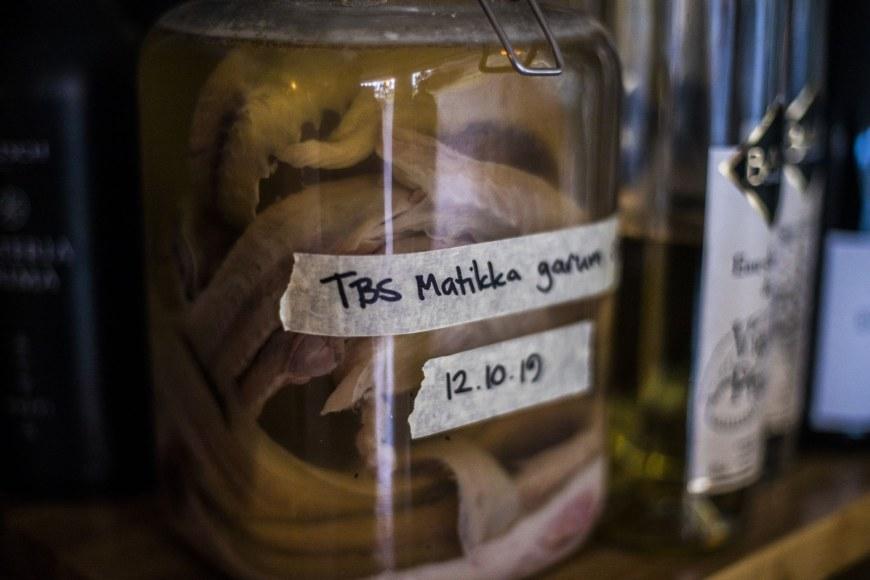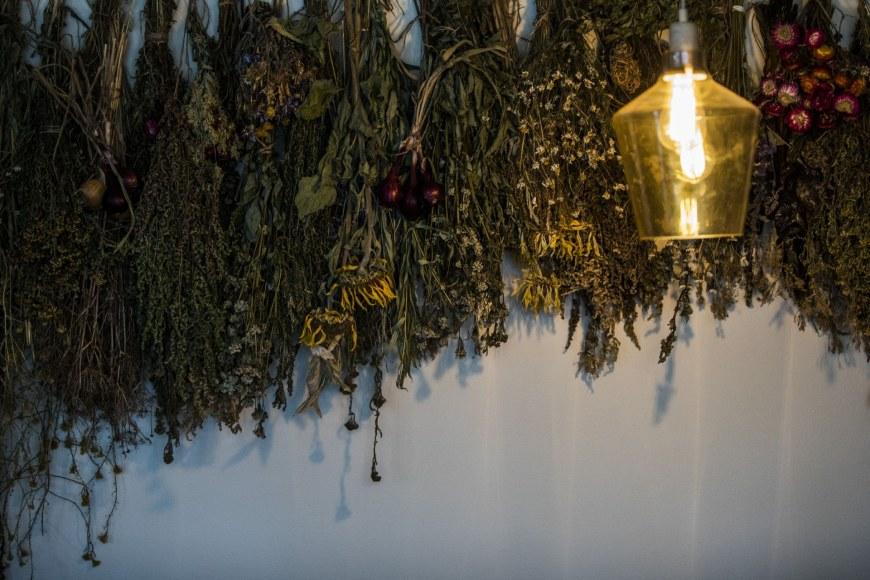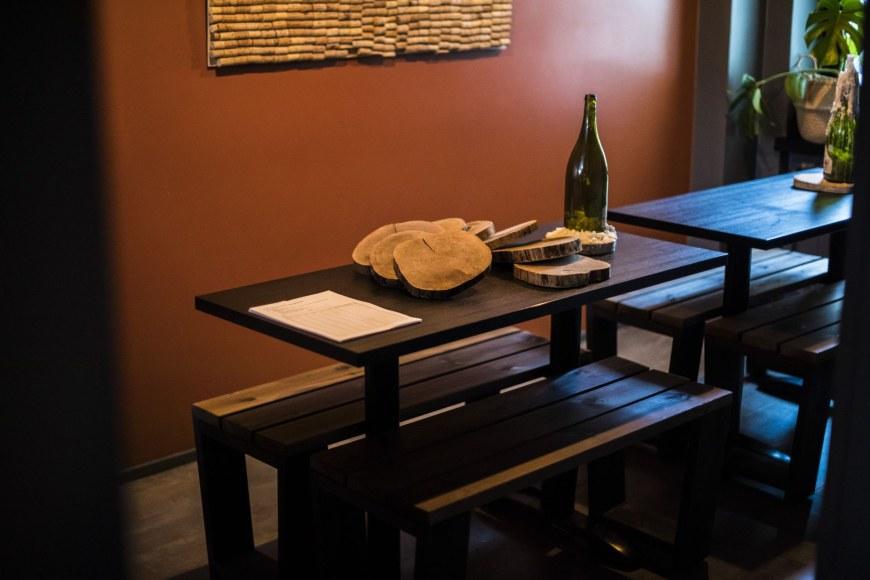Responsibility is not just about solar panels and local food

This article was originally published in Unit, the magazine of Tampere Universities.
While studying biochemistry at university in the mid-1980s, Tuija Heikkilä was a bit secretive about also attending lectures on environmental protection for fear of being labelled a radical.
Today, Heikkilä is a lecturer in the Degree Programme in Hospitality Management at Tampere University of Applied Sciences. She teaches hospitality management students and graduate students, for example, food legislation, microbiology, and a course on the environmentally oriented service landscape. Responsibility is addressed in all the courses in the programme, starting with the orientation to studies.
In Finland, environmental protection became more mainstream with the reform of the Waste Act in 1994. Waste sorting became mandatory, and businesses began to draft plans on waste management and water and energy use.
In the 21st century, corporate social responsibility became a topic of public debate in addition to individual measures such as recycling. Educational institutions started to talk about responsibility, but it was still not a larger trend.
“At the beginning of the 21st century, all Tampere University of Applied Sciences students did a course called ‘People and the Environment’, but few were interested in it. Today, students are very aware of issues of responsibility and are keen to find out more about them also on their own,” says Heikkilä, who has worked as a teacher for more than thirty years.

In restaurants and hotels, responsibility means, for example, favouring local foods, reducing waste and using renewable sources of energy.
Hotel rooftops have started to feature solar panels. Guests are encouraged to use the same towel for several days to reduce the energy costs of laundry. Restaurants are happy to tell diners where their food is coming from.
Heikkilä points out that responsibility also has an economic and social dimension. Businesses must be profitable, and taxes, salaries and employer contributions must be paid. Responsible companies do not use undeclared work or force their employees to work in inhumane conditions.
“Responsibility can also mean doing more than is mandated by law. A company can, for example, participate in charitable activities,” Heikkilä says.
No ready-made fillets or broths made from gravy bases
Responsibility is an integral part of the ideology of the Kajo restaurant and its wine bar Villit and Viinit in Tampere. Kajo is a familiar partner of Tampere University of Applied Sciences through the training of hospitality professionals.
Bunches of herbs are drying on Kajo’s walls. Glass jars contain pickled vegetables and fish guts that are used to extract flavour for fish sauce. The wines come from small producers, and the restaurant uses cloth napkins instead of disposable ones.

However, simply utilising fish guts is not enough for Kajo’s restaurateurs Marko Simunaniemi, Panagiotis Lykoudis and Veli-Matti Lampinen. Their responsibilities extend beyond their daily lives and the restaurant door.
“We visit farms and abattoirs and order whole animals instead of fillets. We are so familiar with the meat production chain that we even know the name of the bull whose meat we are serving,” Simunaniemi says.
Customers are told exactly where the ingredients come from and how they have been used.
“Our role is that of a messenger, because we tell customers, for example, about the work of fishers.”
Simunaniemi, who grew up in a small rural town, got used to his family growing its own potatoes and picking berries. When Simunaniemi started to work in the restaurant business and began studying hospitality at Tampere University of Applied Sciences, he came across a different culture.
“It was strange seeing many restaurants use ready-made fish fillets and broths made from gravy bases instead of guts, bones and vegetable peelings,” Simunaniemi says.
When Kajo was founded in 2018, the restaurateurs decided to fully implement the ideology of making everything themselves. Using extracts would save hours of work, but a responsible way of working is not a burden for the people at Kajo.
“It is inspiring to think about ways we can utilise the surplus from our kitchen. We use domestic lemon verbena in our dishes and get a herbal mash as a by-product. We do not throw it away but use it to flavour drinks instead of imported lemons,” Simunaniemi explains.
More transparency and creativity
What will responsibility in the hospitality and restaurant industry mean in the near future?
According to Heikkilä, indicators for measuring the carbon footprint of products and services will develop. It will be easier for the consumer to compare the carbon footprint of, for example, domestic cow’s milk and imported vegetable milk. Origin and responsibility labels will become even more noticeable in hotel foyers, restaurant menus and food packaging.

Simunaniemi hopes that educational institutions will see ecology as an opportunity rather than an obligation.
“Instead of telling students that you must reduce waste, they could be challenged to come up with their own ideas,” he says.
At its best, responsibility creates experiences. Simunaniemi recalls an inspiring dinner at Restaurant Amass in Copenhagen. The appetizer was fish followed by a taco. The waiter said that the taco shell had been made from the backbone of the fish they had just eaten.
“We had to ask, ‘excuse me, what did you say it is made of?’” Simunaniemi says.
Tips for responsible eating
- Prefer vegetarian seasonal food and local products especially in everyday meals. In this way, you reduce the climate and environmental impact of food, promote the diversity of food culture and support local businesses.
- In a restaurant, ask where the food comes from, because it will encourage restaurants to find out more about the origin of the food they serve.
- Use the guidelines for responsible choices produced by various organisations, such as the Good Fish Guide: https://www.mcsuk.org/goodfishguide/search
- When grocery shopping, think about when you intend to use the product you are buying and choose accordingly. If you plan to eat the food on the same or the next day, prefer discounted products with the day’s expiry date. This will help the store to reduce waste.
- Trust your own senses in addition to the date markings on the packaging.
- Plan your grocery shopping and meals in advance. See what’s in the fridge and cupboards before you go shopping or order food online.
- Pack leftovers in transparent boxes and put them at the front of the fridge or freeze them if you do not use them immediately.
- Use your creativity and challenge yourself to consume all the food and leftovers from previous days. Don’t always look at recipes but cook with what you already have in your kitchen.
The tips were given by Associate Professor Elina Närvänen, University Lecturer Anna Heikkinen, Senior Research Fellow Nina Mesiranta and University Lecturer Malla Mattila from Tampere University.
Author: Janica Brander








